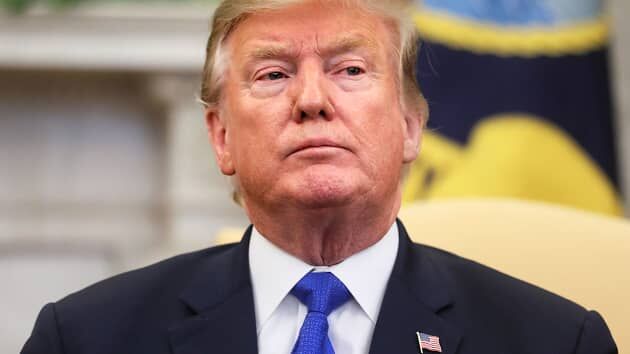Trump’s Fatal Flaw
Courtesy of Jonathan Ernst, Reuters
Trump’s Fatal Flaw
January 20, 2021
The bullish, bumptious, and brazen Donald J. Trump will exit office next week and the Biden administration will assume control amidst one of the most divided times in American history. How history remembers our 45th President remains to be seen, but whether you like him or not, he will undoubtedly be a President to remember.
While President Trump cannot be held solely responsible for the violent uprising we saw at the US Capitol on January 6, he certainly played his part by stoking tensions and raising the temperature of our political climate to reach his own unrealistic ambitions.
Staunch Republicans from every corner of the conservative party have disagreed at times with “The Donald” over the past four years on policy matters ranging from foreign intervention to domestic disputes. I would argue further that while these disagreements certainly angered him at times, he generally navigated them as any US president would by attempting to reach policy agreements and deliver them for the American people. Despite this type of normal behavior over the majority of his tenure, the President has now crossed a line no one thought possible.
United States history is replete with presidents who have, at times, acted like bullies. Lyndon B. Johnson is probably the best example of this, frightening even his own cabinet members and screaming at his opponents regularly in disagreement. There have been many others who have crossed both diplomatically and socially-appropriate lines as commander and chief. Richard Nixon was driven to paranoia and eventually forced to resign. JFK, despite receiving much admiration from today’s Americans on both sides of the aisle, found himself embroiled in multiple scandals during his occupation of the White House.
However, Donald Trump is different. Even many of his supporters will concede that his tactics have often worked to his own detriment. In spite of this, he was our president and, barring the unlikely removal from office or resignation in the next week, will be our President until Joe Biden and Kamala Harris take office later this month.
Given his controversial presidency, we must ask ourselves why Trump was elected in the first place. Many have speculated as to why he was first placed in the White House, and I’ll attempt to do the same.
The country needs different people at different times and it is clear that in 2016 President Trump was the man for the job. After eight years of President Obama and his counterparts, the country was ready for change. Both Democrats and Republicans rejected the political establishment and preferred outsiders during the primaries. In the Democratic Party, this was evident in the rise of more radical Democrats like Bernie Sanders and others who, despite their best intentions, were quelled by the DNC. In the Republican camp, Jeb Bush and other establishment candidates failed, one after another, and their fall made the way for the most unlikely candidate: business tycoon Donald Trump.
In 2016, the American electorate was obviously sick of the Washington political class and couldn’t bear four or even eight more years of “the same.” But how ready for change were they?
I voted for Donald Trump in 2020 but can confidently say that I had wished the first four years of his presidency would have molded him into a more diplomatic and amiable figure. Instead, he doubled down on his worst qualities and banked on his anti-establishment rhetoric to catapult him into a second term. Although he garnered more votes than any other Republican candidate in the history of American politics, Trump came up short. The Democrats bet on an establishment duo and, to the disappointment of nearly 75 million Americans (and relief of another 81 million), it paid off.
In all of Shakespeare’s plays, the characters’ tragic flaws are revealed slowly and deliberately. The fatal flaw that unearths the protagonist’s main character trait leads to his eventual downfall. For Romeo it was impulsiveness. For Hamlet, hesitation. For Macbeth, it was ambition. As a card-carrying Republican, and former Trump supporter, it is clear to me that the President fits the mold of a Shakespearean lead. To most conservatives, and even many moderate liberals, President Trump is a leader who had many positive policy accomplishments, but was led astray by his pompous personality and inability to admit defeat.










